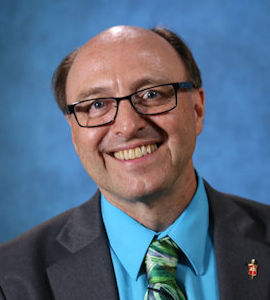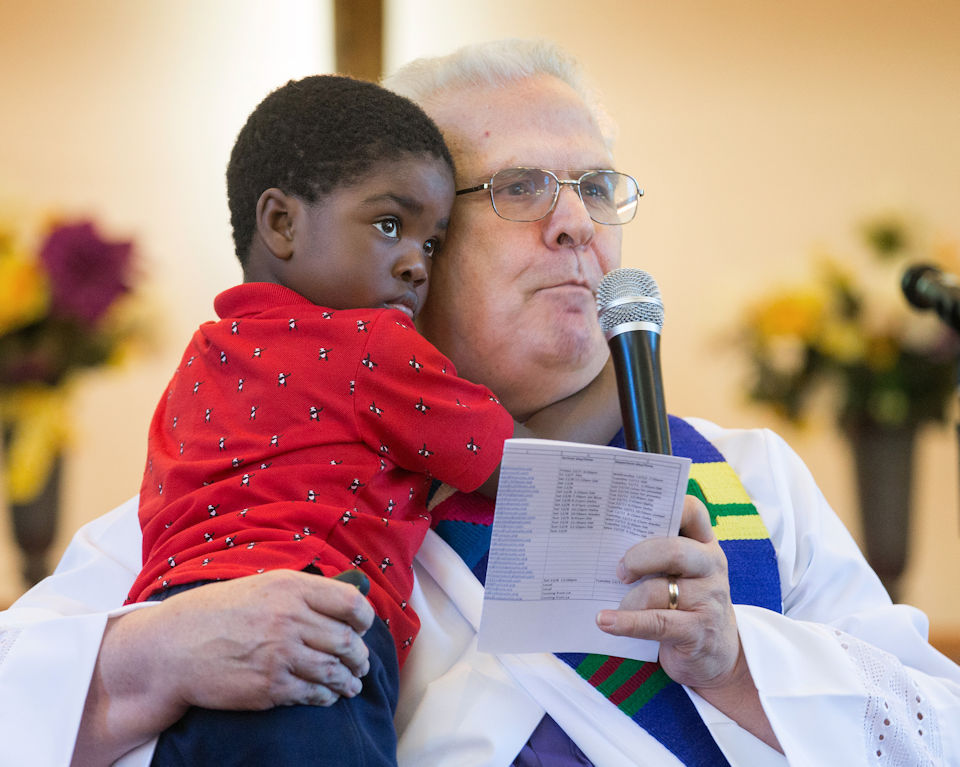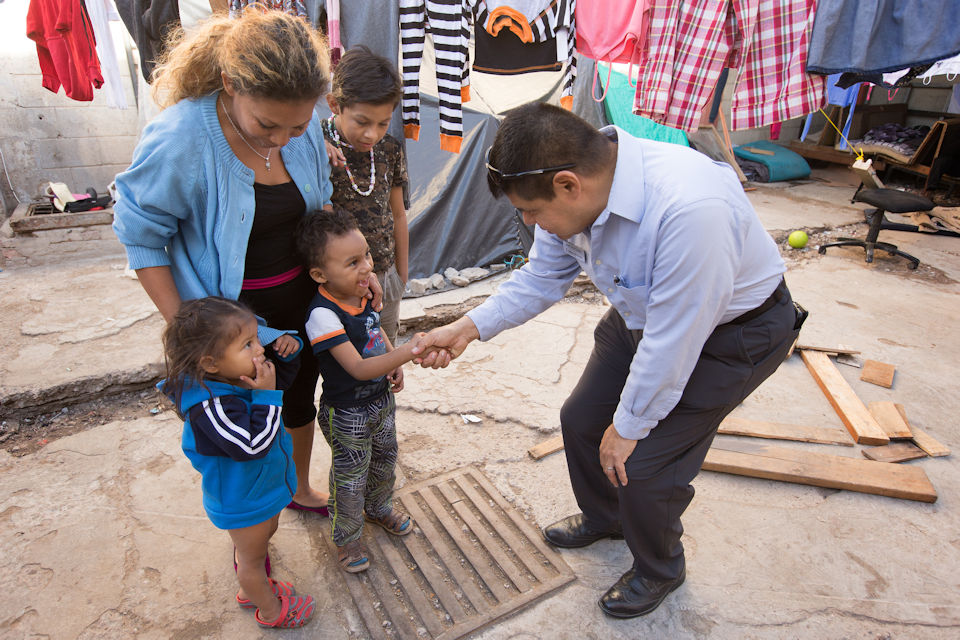Bishop David Bard asks God to give everyone new eyes; eyes for seeing beyond racism to respond to parents and their children at the U.S.-Mexico border in a new light.
BISHOP DAVID BARD
Michigan Area

The wedding service had ended. Pictures had been taken, including a few along the shores of Lake Superior on a beautiful day. Our daughter Sarah was married, and we were going to continue to celebrate with dinner and dancing.
Sarah asked both her older brother and older sister to say a few words as part of the evening’s toasts. Those moments will be etched in my memory forever, filled with feelings of deep pride, affection, and love. There were our three children, now grown adults, all married, and the love and care they have for each other swelled Julie’s heart and mine.
Isn’t that what we want and hope for our children, that they will develop into caring adults, that they will be healthy, and know happiness, that they will support and care about each other? Isn’t that what all parents want for their children unless trauma or addiction has so damaged them that they have lost the capacity to parent well?
In thinking about those moments at Sarah’s wedding, I cannot help but also think about other children, children whose parents want for them health and happiness and opportunity, children whose parents want them to grow up with a modicum of safety and security. We have many such children coming to our borders. Are we seeing them as children? Are we seeing them as children whose parents want them to be well and have opportunities to do well
Being able to see these children as children with such parents will not answer all the complex questions about immigration policy and border security that continue to occupy political debate. Yet to see in this way is necessary. In The United Methodist resolution on migration, we call for comprehensive reform of the United States immigration system, and then include this statement: “Any legislation to reform the U.S. immigration system must affirm the worth, dignity, and inherent value and rights of migrants.” This is an invitation to us to see differently.
Seeing differently. This is a deeply spiritual issue. “Jesus took the blind man by the hand and led him out of the village; and when he had put saliva on his eyes and laid his hands on him he asked him, “Can you see anything?” And the man looked up and said, “I can see people, but they look like trees, walking.” Then Jesus laid his hands on his eyes again, and he looked intently, and his sight was restored, and he saw everything clearly.” (Mark 8:23-25) Part of the restoration of sight, spiritually, is that we see people as people, children as children. In writing to the Galatian followers of Jesus, Paul writes, “There is no longer Jew or Greek, there is no longer slave or free, there is no longer male and female; for all of you are one in Christ Jesus.” (3:28) Paul is asserting that when we see more truly in Jesus Christ, the categories through which we often look at the world fade away. We see people as people, children as children, human persons as persons loved by God and created in God’s image.

Our failure to see migrant children as children whose parents want a better life for them is a kind of spiritual blindness. Racism and sexism, which seem to have gained new footholds in our society are spiritually pernicious and are rooted in spiritual blindness, a failure to see others who may be different in some ways as deeply similar to us, as human persons created in the image of God, loved by God, with hopes, dreams, disappointments, joys, and struggles. We trust that in Jesus Christ, though, our blindness can be healed. In being converted to Jesus Christ, we join the journey to new sight, to seeing more deeply and truthfully. One part of the mission of the Michigan Conference is to help nurture and grow vibrant congregations. An important element in vibrant congregations is that they develop an increasing capacity to have challenging conversations – deep and profound conversations about life, about what it means to follow Jesus in this day and time, and even about tough issues facing our world and the moral climate in which we live.
There are no simple solutions to the crisis at our border, or to the new ascendency of racism and sexism. Yet, we must begin with having our sight healed. We must begin by seeing those caught up in the border crisis as human beings; we must see children as children. We need to assert that human beings deserve humane treatment, and children deserve care. As we allow God’s Spirit in the touch of Jesus to continue to heal our sight, we will see that we can do better. We will understand that we need not be trapped in old ways of seeing. We need not allow racism to shape our seeing or acting, though its roots are as long as the slavery that marred our national life for so many years. We need not allow sexism to form our sight and behavior, though it has only been 100 years since women in this country were given the right to vote, and only a little over 60 years since the Methodist Church allowed the ordination of women.
God grant us grace to see with new eyes. God grant us courage to speak what we see. God grant us love to live in the world differently.
Last Updated on September 20, 2022

